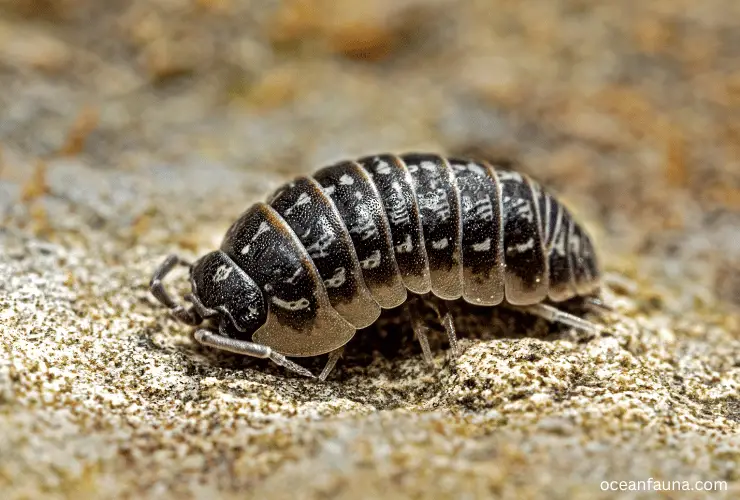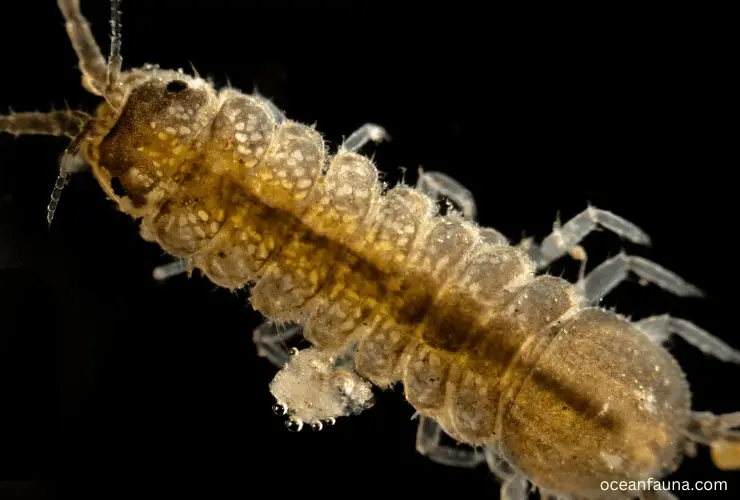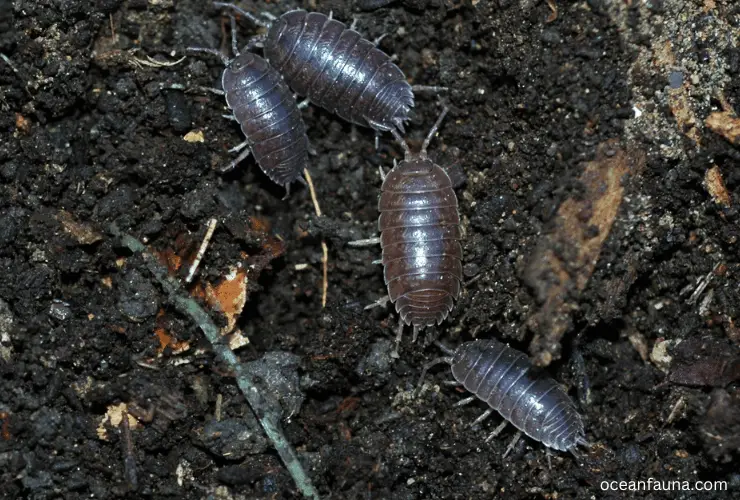Isopods are tiny little creatures that eat anything in their way. Their main foods are dried leaves, dead organic animals, human and animal waste, and much more. Due to their eating habits, they’re known as nature’s clean-up crew.
As these tiny creatures help to clean up nature and maintain the ecological balance, there’s undoubtedly a question arising, how long do isopods live?
The average lifespan of isopods is around 1 to 2 years. However, there are exceptions as well. There are records of isopods living more than 4 years as well. The newborn baby isopods remain at risk after birth. However, they quickly reach adulthood within 12 weeks of their birth.
The average living time of isopods has been mentioned above. But the lifespan of isopods varies depending on the type of environment they’re living in. Terrestrial isopods have a different lifespan than marine ones or the ones kept in captivity.
So to help to know the exact lifespan of isopods in a different environment, we’ve brought this guide for you. Sit tight and read to the end to explore the lifespan of isopods!
How Long Do Isopods Live?
Isopods are everywhere around us. Whether it’s the wild or the deep-sea water, these tiny creatures have inhabited almost all the places on the earth.
You surely have seen these tiny creatures as they’re filled in almost all places, mainly in the forest, garbage dumps, and jungles. They mainly live around bushes, under old bricks, wooden planks, and dead plants.
Another reason for noticing these small bugs is that they live and roam around in groups.

Isopods are very important for nature. They need to survive as they keep the environment clean and help break down and clear the waste.
Typically, isopods survive for 1-2 years. But there are exceptions as well. The survival time depends on the environment. It’s believed that some isopods live up to 5 years as well.
As the lifespan of these tiny bugs depends on their habitat, let’s find out the lifespan of these bugs in different environments…
How Long Do Isopods Live in the Wild?
There are more than 10,000 species of Isopods. From extreme wild to deep sea, isopods are everywhere. At present, isopods are even cultivated commercially for their enormous benefits.
Among the thousands of species of isopods, most of them are terrestrial. That means most isopods live on the ground or found in the wild.
Although isopods are extremely effective in keeping the natural and ecological balance, it’s disheartening to share that they’ve got a little lifespan.
An isopod typically lives around 1 to 2 years in the wild. Yes, there are exceptions of some who live around 5 years, but considering the average number, this is relatively low!
How Long Do Isopods Live in the Water?
As you already know, there are thousands of species of isopods; 10,000 to be exact. And among them, most of these isopods are terrestrial. Besides the terrestrial isopods, some marine isopods are known to be living under the waters for years.
The mostly known marine isopods are giant isopods. They’re typically larger in length than the regular ones and are found to be living in cold and deep waters.
Among the 10,000 isopods, around 20 species are named or known as giant isopods.
As marine isopods live in greater depths of water, their exact lifespan of them is yet to be known. However, it’s believed that, as they have quite similar characteristics to terrestrial isopods, their lifespan is the same as well.
That means marine isopods also live for around 2 years under the waters. On top of that, there have also been reports about having a longer lifespan. Marine isopods can also live up to 5 years, and they also love to be in groups.
Another similar fact between marine isopods and terrestrial isopods is that marine ones also prefer to stay in groups, and their survival chances decrease as soon as they’re separated from the group.
How Long Do Isopods Live in Captivity?
Due to the wide range of benefits, isopods are being cultured commercially. That’s why they’re often kept in captivity or in storage pots as pets.
As you already know the lifespan of isopods in ground and water, you surely be asking yourself, how long do isopods live in captivity?
Well, for your information, the lifespan of isopods in captivity is around 3 to 4 years. They normally give birth in their 2nd, 3rd, and 4th years. However, for proper reproduction methods and growth, it’s important to ensure an appropriate environment for living.
If proper living conditions aren’t ensured, there’s a huge chance of the offspring or the baby isopods dying. These babies are at a high risk of death until 12 weeks after their birth. So if you want to grow isopods healthily and want to make their proper growth, ensure a proper living atmosphere for them first!
Do All Isopods Survive After Birth?
No, not all the babies of isopods survive after birth.
Like other creatures, the survival rate of baby isopods isn’t 100% as well. In fact, baby isopods are at a risk of dying until the 12 weeks of their birth.

The exact survival rate of baby isopods is still unknown. However, due to their wide range of availability in nature, it’s believed that their survival percentage is quite high, but not 100%!
As told before, isopods give birth in their 2nd, 3rd, and 4th years. An average female isopod carries around 2000 eggs in its body during a single reproductive cycle. It takes around 7 weeks for the eggs to hatch once they’re released. And once hatched, the babies get separated from their parents and never return!
How Many Isopods For a 20 Gallon Tank?
Although isopods love to live in groups, that doesn’t mean you should keep hundreds of them in the same place.
You already know that the survival rate of isopods depends on the place they’re kept in. That’s why, if you want to cultivate them commercially or want to keep them as pets, it’s necessary to follow some guidelines.
Normally, keeping around 10 to 15 isopods in a 25-square-metre enclosure is recommended. However, you can keep a lesser number in the same-sized space for optimum results.
However, if the isopods are large or mature ones, the number would be even less.
Now the question is, how many isopods are for a 20-gallon tank?
As you know, 10 to 1 5 isopods can be kept in 25 square feet of space. From this, you can easily find out the required number of isopods required for 20 gallons, right? Well, why not give it a try? And let us know how it turned out!
How Long Can Isopods Live Without Food?
Isopods are tiny little creatures that live around in wild forests and deep-sea waters. Be it terrestrial or marine isopods; they cannot eat more at a time.
Isopods are known to be one of the most adaptive tiny creatures. One of their biggest traits is that they can survive for a long period without eating any food.
The lifespan of isopods is around 4 to 5 years at max. It’s believed that isopods can survive without food for up to 4 years. It’s unbelievable, right? It surely is!
However, this condition is justified only for isopods that are kept in aquariums. This may be the same case for terrestrial or marine isopods. But there’s no clear evidence about this fact!
How Long Can Isopods Live Without Water?
Yes, isopods can live without water!
Alongside marine isopods, there are numerous species of terrestrial isopods as well. Terrestrial isopods are mainly found around forests and bushes, under dead woods, dead animals, etc.
There are some characteristical differences between terrestrial and marine isopods. As the terrestrial isopods have adapted themselves to the ground, if they’re kept in water for too long, they might die!
On the other hand, if the marine isopods are kept on land, they’ll also die as they’ve adapted themselves to living on the water.
So depending on the species and type, isopods can live on water and without water!
How Long Can Isopods Live in a Container?
The lifespan or survival rate of isopods depends upon the environment they’re living in.
Although the average lifespan is around 2 to 5 years, when they’re kept in captivity or containers, they can come down to as low as 1 week!
Yes, it’s that low!
Some people often keep isopods in plastic boxes or containers. But little do they care about the precautions or the living environment for the tiny creatures.
So if you’re about to put isopods in a plastic box or container, make proper holes or keep a perforated lid so that air and light can pass through it. But be careful about the size of the holes because if they’re bigger than the isopods, the isopods might escape through them!
Conclusion
So how long do isopods live? Well, you now know, right? And that’s all about knowing the lifespan of isopods.
In case you want to keep them as pets or cultivate them for commercial purposes, do follow the rules of keeping them and their surroundings. And in this way, you can definitely expect a higher survival chance and lifespan of the isopods!
As you’ve read till the end, do let us know in the comments box whether it was helpful for you or not. And if we missed anything, do let us know too! Thank you!


3 thoughts on “How Long Do Isopods Live?”